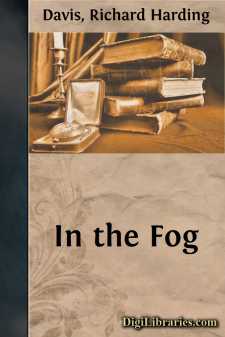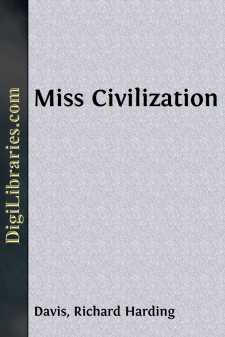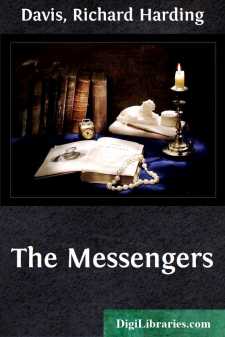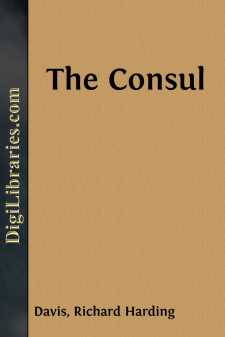Categories
- Antiques & Collectibles 13
- Architecture 36
- Art 48
- Bibles 22
- Biography & Autobiography 815
- Body, Mind & Spirit 144
- Business & Economics 28
- Children's Books 18
- Children's Fiction 14
- Computers 4
- Cooking 94
- Crafts & Hobbies 4
- Drama 346
- Education 58
- Family & Relationships 59
- Fiction 11834
- Games 19
- Gardening 17
- Health & Fitness 34
- History 1378
- House & Home 1
- Humor 147
- Juvenile Fiction 1873
- Juvenile Nonfiction 202
- Language Arts & Disciplines 89
- Law 16
- Literary Collections 686
- Literary Criticism 179
- Mathematics 13
- Medical 41
- Music 40
- Nature 179
- Non-Classifiable 1768
- Performing Arts 7
- Periodicals 1453
- Philosophy 65
- Photography 2
- Poetry 896
- Political Science 203
- Psychology 44
- Reference 154
- Religion 515
- Science 126
- Self-Help 85
- Social Science 82
- Sports & Recreation 34
- Study Aids 3
- Technology & Engineering 59
- Transportation 23
- Travel 463
- True Crime 29
Our website is made possible by displaying online advertisements to our visitors.
Please consider supporting us by disabling your ad blocker.
Gallegher and Other Stories
Description:
Excerpt
We had had so many office-boys before Gallegher came among us that they had begun to lose the characteristics of individuals, and became merged in a composite photograph of small boys, to whom we applied the generic title of "Here, you"; or "You, boy."
We had had sleepy boys, and lazy boys, and bright, "smart" boys, who became so familiar on so short an acquaintance that we were forced to part with them to save our own self-respect.
They generally graduated into district-messenger boys, and occasionally returned to us in blue coats with nickel-plated buttons, and patronized us.
But Gallegher was something different from anything we had experienced before. Gallegher was short and broad in build, with a solid, muscular broadness, and not a fat and dumpy shortness. He wore perpetually on his face a happy and knowing smile, as if you and the world in general were not impressing him as seriously as you thought you were, and his eyes, which were very black and very bright, snapped intelligently at you like those of a little black-and-tan terrier.
All Gallegher knew had been learnt on the streets; not a very good school in itself, but one that turns out very knowing scholars. And Gallegher had attended both morning and evening sessions. He could not tell you who the Pilgrim Fathers were, nor could he name the thirteen original States, but he knew all the officers of the twenty-second police district by name, and he could distinguish the clang of a fire- engine's gong from that of a patrol-wagon or an ambulance fully two blocks distant. It was Gallegher who rang the alarm when the Woolwich Mills caught fire, while the officer on the beat was asleep, and it was Gallegher who led the "Black Diamonds" against the "Wharf Rats," when they used to stone each other to their hearts' content on the coal-wharves of Richmond.
I am afraid, now that I see these facts written down, that Gallegher was not a reputable character; but he was so very young and so very old for his years that we all liked him very much nevertheless. He lived in the extreme northern part of Philadelphia, where the cotton- and woollen-mills run down to the river, and how he ever got home after leaving the Press building at two in the morning, was one of the mysteries of the office. Sometimes he caught a night car, and sometimes he walked all the way, arriving at the little house, where his mother and himself lived alone, at four in the morning. Occasionally he was given a ride on an early milk-cart, or on one of the newspaper delivery wagons, with its high piles of papers still damp and sticky from the press. He knew several drivers of "night hawks"—those cabs that prowl the streets at night looking for belated passengers—and when it was a very cold morning he would not go home at all, but would crawl into one of these cabs and sleep, curled up on the cushions, until daylight.
Besides being quick and cheerful, Gallegher possessed a power of amusing the Press's young men to a degree seldom attained by the ordinary mortal. His clog-dancing on the city editor's desk, when that gentleman was up-stairs fighting for two more columns of space, was always a source of innocent joy to us, and his imitations of the comedians of the variety halls delighted even the dramatic critic, from whom the comedians themselves failed to force a smile....












